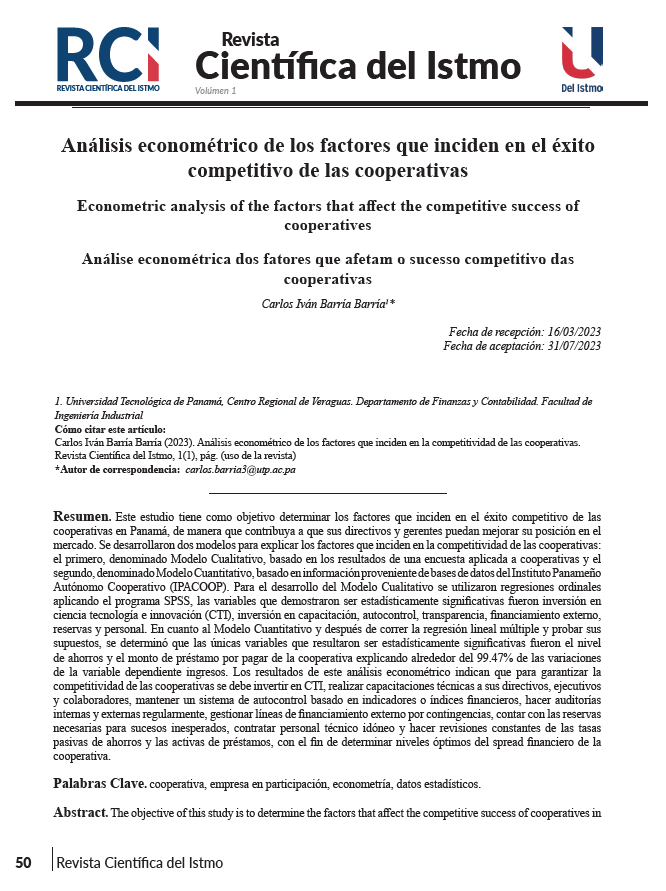Econometric analysis of the factors that affect the competitive success of cooperatives
Main Article Content
Abstract
The objective of this study is to determine the factors that affect the competitive success of cooperatives in Panama, in a way that contributes to directors and managers to improve their position in the market. Two models were developed to explain the factors that affect the competitiveness of cooperatives: the first, called the Qualitative Model, based on the results of a survey applied to cooperatives, and the second, called the Quantitative Model, based on information from databases. of the Panamanian Autonomous Cooperative Institute (IPACOOP). For the Development of the qualitative Model, ordinal regressions were used applying the SPSS program, the variables that proved to be statistically significant were investment in science, technology and innovation (CTI), investment in training, self- control, transparency, external financing, reserves and personnel. Regarding the quantitative model, and after running the multiple linear regression and testing its assumptions, it was determined that the only variables that turned out to be statistically significant were the level of savings and the amount of the loan payable by the cooperative, explaining around 99.47% of the variations of the dependent variable income. The results of this econometric analysis indicate that to guarantee the competitiveness of cooperatives, it is necessary to invest in CTI, carry out technical training for their directors, executives and collaborators, maintain a self-control system based on financial indicators or indexes, carry out internal and external audits regularly. , manage external financing lines for contingencies, have the necessary reserves for unexpected events, hire suitable technical personnel and make constant reviews of the passive savings rates and the active loans, in order to determine optimal levels of the financial spread of the cooperative.

